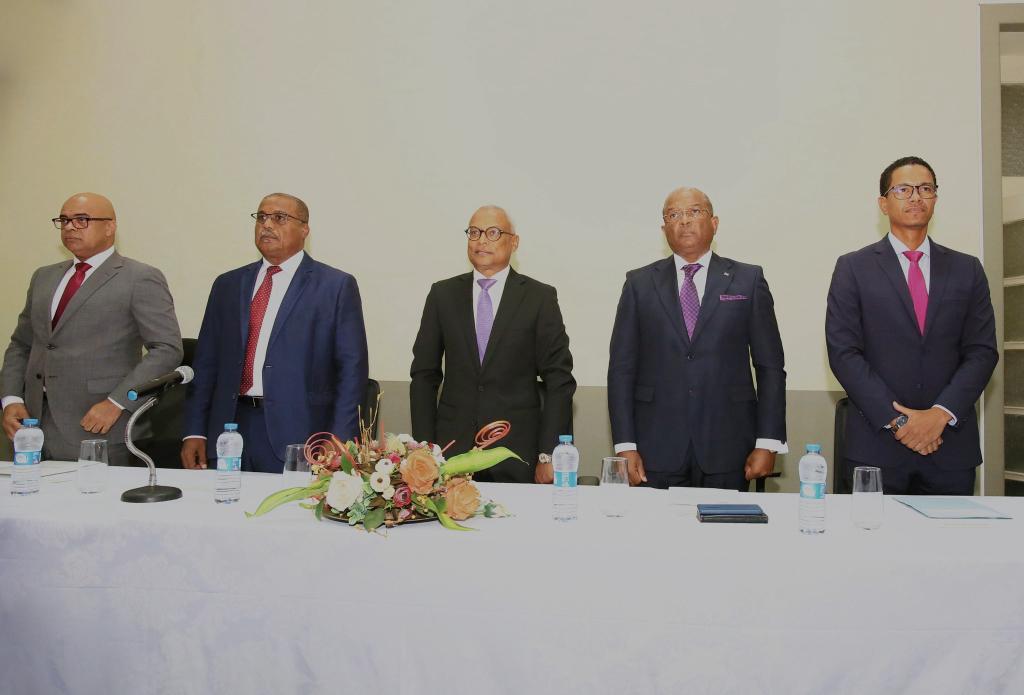Africa-Press – Cape verde. Today, during the opening of the 2025-2026 judicial year, authorities considered the legislative package approved in June an opportunity to consolidate the justice sector, strengthen court performance, reduce procedural delays, and make the system more modern, accurate, and accessible to citizens.
In his speech, the President of the Republic, José Maria Neves, stated that the set of laws approved revised the law on judicial organization, the statutes of the judiciary, and the structure of the higher councils, including the inspection services.
José Maria Neves also emphasized that the approval of these measures is part of a journey initiated with the 2010 constitutional revision, which designed “a new architecture for Cape Verdean justice.”
In this sense, he added that, fifteen years later, this reform is now entering a new cycle of maturation, signaling a horizon of hope and institutional consolidation.
“This effort is the legacy of a journey that began with the 2010 constitutional review, which designed a new architecture for Cape Verdean justice. Fifteen years in the making, this reform is now entering a new phase of maturation, signaling a horizon of hope and institutional consolidation. However, reality demands prudence and determination,” he said.
The Head of State warned of the challenges that persist, namely procedural delays, accumulated backlogs, and the weaknesses of the judicial inspection service.
“There are people waiting for a sentence for months and even years. This is a situation that cannot continue, otherwise we risk compromising the transparency and trust we all should have in justice,” he warned.
The Head of State also argued that the independence of the judiciary must be accompanied by resources and accountability for judicial practitioners. “More than diagnoses, the times call for firm solutions and coherent strategies,” he stated.
STJ
Regarding the legislative package, the Chief Justice of the Supreme Court of Justice (STJ), Judge Benfeito Mosso Ramos, said that its approval represents an important milestone for the sector, emphasizing the consensus reached among the sovereign bodies regarding the structural reforms.
“This is a remarkable effort, especially because it provided us with the rare opportunity to witness a broad and solid consensus, a singular convergence among all the sovereign bodies that structural reforms for the justice sector could no longer be postponed,” he stated.
According to the judge, the changes cover matters such as the organization and functioning of the courts, the organization of the higher councils of the judiciary, the inspection of the judiciary, and the status of magistrates. “We are convinced that this improvement will soon bear fruit,” he added.
The President of the Superior Court of Justice (STJ) also expressed the hope that the same spirit of consensus be used to resolve outstanding issues related to judicial officers, especially regarding their pay status.
“The cause-and-effect relationship between investment in human resources and results is so evident that it needs no demonstration,” he emphasized.
In his speech, Benfeito Mosso Ramos also called for the consolidation, within the system, of a work culture focused on measurable results, with serenity and firmness in the face of adversity, but also with the humility to listen to the sentiments of society.
CSMJ
In turn, the President of the Superior Council of the Judiciary (CSMJ), Bernardino Delgado, considered the aforementioned legislative package to be a fundamental tool for strengthening the effectiveness of the judicial system in Cape Verde.
“I must emphasize that the changes implemented through the Justice package recently approved in Parliament will certainly help the Council achieve its objectives,” he stated.
According to Bernardino Delgado, the approval of this set of laws comes at a time when the sector faces significant challenges, including preserving the independence of the courts and combating procedural delays.
“It’s a clear commitment to Cape Verdeans: to reduce waiting times for those under jurisdiction and put an end to practices that keep parties indefinitely awaiting a decision,” he noted.
Bernardino Delgado recalled that, in 2023, 13,558 cases were filed with the courts, of which 13,846 were resolved, a sign of the system’s increased responsiveness. Even so, he emphasized that “the reduction in backlog could have been greater, in order to accentuate the downward trend.”
The installation of the new Criminal Investigation Court in the Praia District, the increased number of judges and court officers, as well as the commitment to technological modernization, were other points highlighted by the president of the CSMJ as measures that will translate into gains in bringing justice closer to the citizen.
“We are in a new era, the era of the technological revolution.
For More News And Analysis About Cape verde Follow Africa-Press






